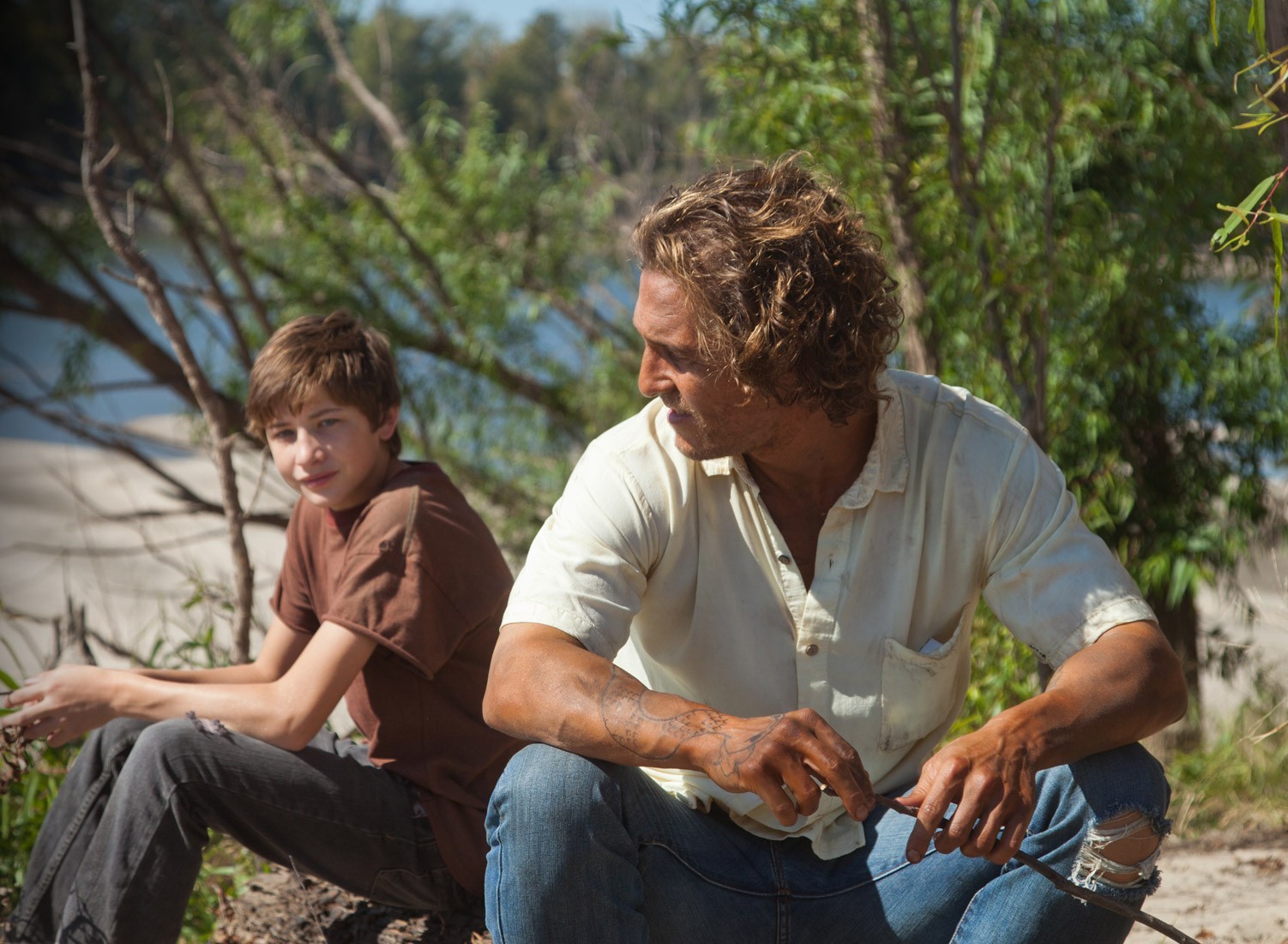My Big Fat Greek Wedding (2002)
Director: Joel Zwick
No, rom-com fans, I had never actually seen this one before now. While I won't say that I regret letting all these years pass without seeing it, I can certainly see why it was such a sleeper hit 15 years ago.
For those unfamiliar, the story follows Toula, a 30-year old, single Greek-American woman whose massive, boisterous family shares a stifling concern over her state of being a bachelorette. When Toula does find a man whom she loves, Ian, things get no easier due to the fact that he is not of Greek descent, a situation which Toula's grecophile family can hardly wrap their minds around. The rest of the movie is mostly a comedy of errors and culture clashes between Ian and Toula's smothering but warm family. Ian comes from a laughably quiet, poised family composed of only himself and his overly stoic WASP parents, whereas Toula's family is a virtual army of caring and passionate but nosy and noisy siblings, aunts, uncles, cousins, and family friends.
The movie is certainly fun enough, and I was pleasantly surprised at how efficiently the story is told. While it hits the standard marks expected of a rom-com, it often comes at them from different angles and never really belabors the more familiar points. One example is the self-improvement montage, where Toula decides to "go from drab to fab" by redoing her wardrobe, hair, and makeup. I feel that other movies emphasize these types of makeovers and scenes too much, but
Greek Wedding offers it to us in a crisp, less-than-60 seconds sequence that makes its point and then moves on. This is one of several examples of strong pacing which keep things moving along, an essential element of good comedies.
The cast is a great asset, as well. The script is decent enough, and all of the actors get to show off their comic timing to great effect. Not every gag or line hits, but enough of them do to keep the movie worthwhile. I'll probably never be a person who goes out of my way to watch a rom-com like this, but I enjoyed this one, and I could see myself watching it again with my wife.
Side Note: My wife recently tried to watch the sequel which came out last year, and she barely made it to the 5-minute mark. She said it was that bad. Apparently it was just trotting out the same, 14-year old gags and was generally annoying to her. This begs the question, if the film makers wanted to just do a stale, unoriginal sequel as a cash grab, why wait 14 years to do it?
The Assassination of Jesse James by the Coward Robert Ford (2007)
Director: Andrew Dominik
A rather novel entry into the list of American Western movies, and one whose box office draw fell far short of its merits.
As the lengthy title suggests, the film focuses on the final few years and ultimate slaying of notorious 19th century outlaw Jesse James. Unlike most Westerns, though, this one eschews glamorizing the best-known characters or relying on fast-paced, action-based thrills. Instead, the movie is a slow meditation on the eerie expansiveness of the West, the warped and often despicable character of Jesse James, and the gradual erosion of Robert Ford's romanticization of the infamous thief and killer.
Using the source novel of the same name, the movie tells of the relationship between the two title characters. Around the late 1870s, Jesse James (Brad Pitt) and his gang have all but ceased the robberies which made them known throughout the U.S. and even the world, but they still hold a mythical appeal in many places. Robert Ford (Casey Affleck) is a young Missourian who has long idolized James, and he finally gets his chance to be a member of his gang during one, mostly-unsuccessful, train robbery. James has family ties in the area, and he uses them to wrangle cousins and other hangers-on into his schemes, even if nearly all of them come to nothing. Ford, as one of these hopefuls, begins to see James for what he is - a mentally unstable, volatile, and sometimes murderous fiend. James is still able to be charming and charismatic at times, but they do not always cover up the far darker aspects of his nature. Over several years of acquaintance, Robert Ford eventually volunteers to kill James on behalf of the governor of Missouri, hoping that he will be hailed as a hero. Such is not necessarily the case, however, as many still incorrectly viewed James as a Robin Hood of the West. This leads many to see Ford as an underhanded scoundrel who merely killed a righteous outlaw for his own personal gain.
In several ways, this movie is not unlike Clint Eastwood's
Unforgiven, in that it strips away the glamour often associated with the brutality and violence of the 19th century U.S. "Wild" West. The film does a brilliant job in depicting Jesse James as a charmer who can put his good looks and articulateness to his own selfish uses, while at the same time showing just how brutal and paranoid he is. The movie also takes the bold and effective mood of focusing more on Robert Ford and his growing disillusionment at James. Not relying on simple, pat turns of plot, the story is subtle and gradual with the erosion of Ford's romanticism of his boyhood hero. Ford is never vilified or hailed, per se, but is shown as a man who is almost helplessly swept up by powers and individuals who are simply stronger than he. When he does decide to take action for himself, seeing how it unfolds is a borderline tragedy.
 |
The Wyeth-esque landscapes are often just as eerie as the
murderous outlaws that roam them. |
The acting is outstanding. This was Casey Affleck's true breakout role as the confused Robert Ford, and it's no surprise that he has since garnered more praise for his leading roles in movies like
Gone, Baby, Gone and
Manchester by the Sea. Brad Pitt also turns in one of his more understated yet highly effective performances as the infamous Jesse James. The supporting cast is also stocked with strong actors, some easily recognizable such as Jeremy Renner and Sam Rockwell, and others less known.
As much as the story and acting, though, is the setting and cinematography. Like some of the greatest westerns,
The Assassination of Jesse James uses the openness and quiet of the time and place to build an often eerie sense of loneliness. Compared to later and modern eras, time and space seemed to have a near-eternal quality that can be imposing, to say the least. When you consider how friends and neighbors in the area would routinely go weeks and months without seeing or hearing from each other, the isolation is daunting. When you add in the fact that an unpredictable, homicidal killer is stalking the plains, then you have the stuff of nightmares. Director Andrew Dominik uses this to great effect, along with the cinematography. Certain shots use grainy or fuzzy peripherals that enhance a sense of blurred perspective, which is in keeping with the distorted and shifting views of Robert Ford, a fractured character whose warped feelings towards James are at the heart of the film.
I may not feel the need to watch this movie again, but I now consider it among some of the very best Western films of all time. Highly recommended for those who enjoy creative film-making, and especially the Western genre.
 |
Ellis and Mud figuring each other out on the island. The
relationship between the two is the crux of the movie, although
their feelings towards others is just as important. |
Mud (2012)
Director: Jeff Nichols
While it didn't meet my lofty expectations,
Mud is a solid and compelling movie.
Taking place on a river in Arkansas, the movie follows two 14-year old local boys who discover an odd man (Matthew McConaughey) squatting on a small nearby island where the boys are looking to scavenge any flotsam and jetsam which the river has washed up. The man gives his name only as "Mud," and the boys take to running odd little errands for him on the Arkansas mainland, getting him food and bringing messages to a young woman to whom Mud has some mysterious dedication. The boys soon learn that local police are searching for Mud in connection with a murder in Texas. One of the boys, Ellis (Tye Sheridan), is a budding romantic who desperately wants to see Mud as a kindred spirit who has done unsavory things in the name of love. This becomes more and more difficult, however, as facts about Mud's past emerge. The tension cranks up wildly when a group of bounty hunters arrive in the area, looking to kill Mud on the orders of the murdered man's powerful and vindictive father.
This is now the third movie of director Jeff Nichols which I've seen, and it was his third film after his debut
Shotgun Stories and the incredible follow-up
Take Shelter.
Mud is much more like the former, as it uses the setting of rural/suburban Arkansas to great effect, offering a very authentic sense of place and the people in it and telling a fairly straightforward story. Whereas
Shotgun Stories was more toned-down, humanist drama, however,
Mud uses elements from more popular genres like mystery, suspense, and action. The latter two elements actually weaken the film just a bit, in my view, mostly because they stand in rather stark contrast to the more genuine, emotional story of Ellis. Ellis's attempts to find love with an older girl in the area are the most touching and organic aspect of the entire movie. While it wouldn't have been enough to carry this film, it bears a genuineness that makes the more sensational and plot-driven elements feel a tad cheap.
Woven into the tale is the general sense of a childhood and youth being lost before our eyes. At the beginning of the movie, we learn that Ellis's parents are having marital difficulties. Though hardly the only reason, a major issue is that the family is almost certain to lose their house boat, which doubles as the source of his father's income as a fisherman. Ellis's desperation to flee from the disintegration of his parents' marriage, as well as their life on the river, plays a major part in why he becomes drawn to Mud. While not always completely subtle about these connections, the movie doesn't beat you over the head with it, and it does build some worthy cohesion between what could otherwise have been a very fragmented tale. This sort of cohesive storytelling seems to be a strength of Jeff Nichols, based on the three movies of his which I've seen.
I think that the only reason that I was slightly underwhelmed by this movie is that I saw it too long after it came out over four years ago. It was a well-received movie, to be sure, but it was also the true beginning of the "McConaughssaince," during which Matthew McConaughey reinvented himself as more than just an easy-going Texas dude with six-pack abs and a pretty face, cashing checks from rom-cam royalties. Within the next two years, he would receive tons of acclaim for his roles in
Dallas Buyers' Club and especially
True Detective, and even a few smaller cameo roles here and there. By the time I saw
Mud, I had built this movie up in my mind to be an all-time great, which is unfair to expect of any film. Though it didn't (and perhaps couldn't) meet my unreasonable expectations, this is one that I can easily recommend to nearly anyone. There are a few flaws to be fussed over, but it is another solid effort from one of the U.S.'s best young filmmakers today.








